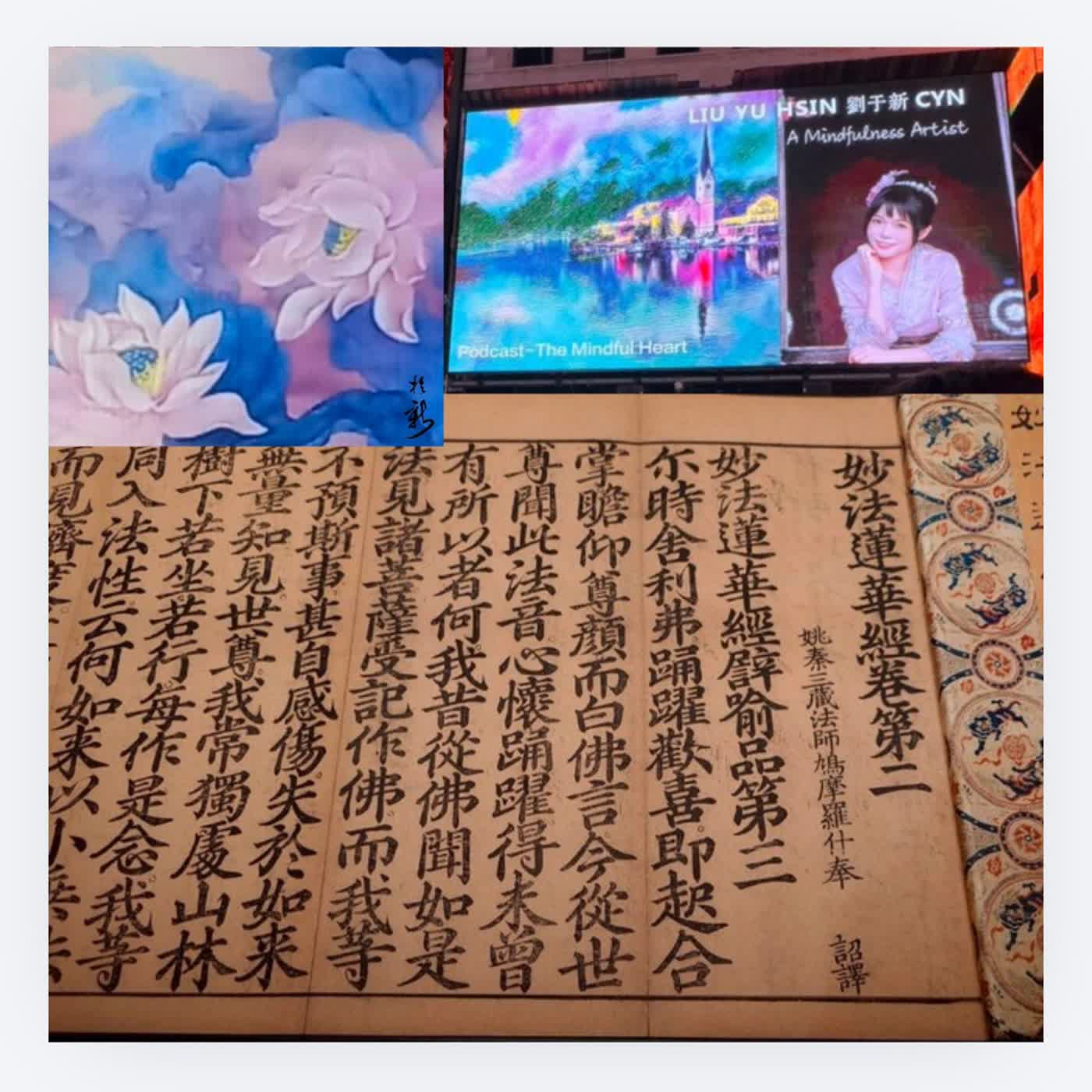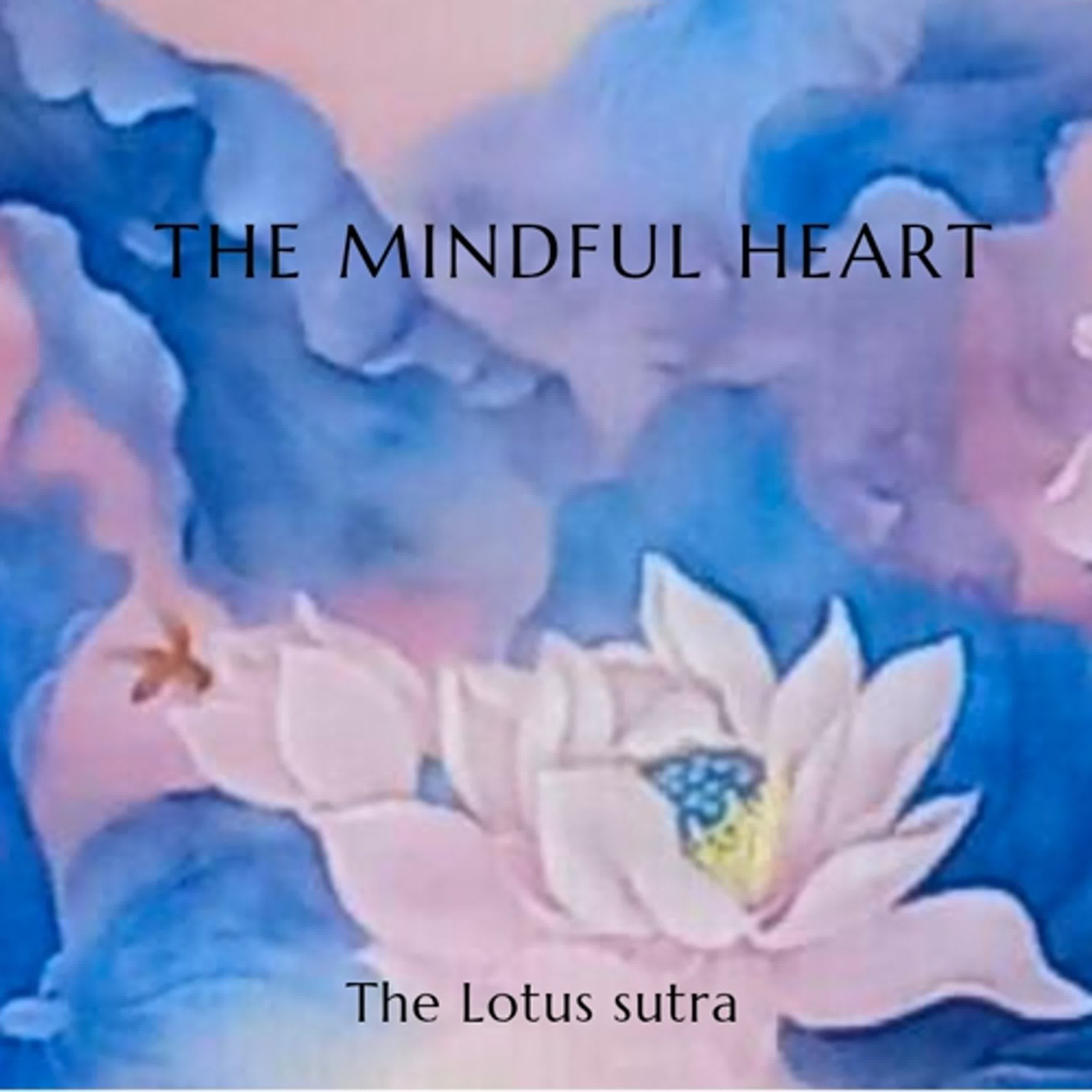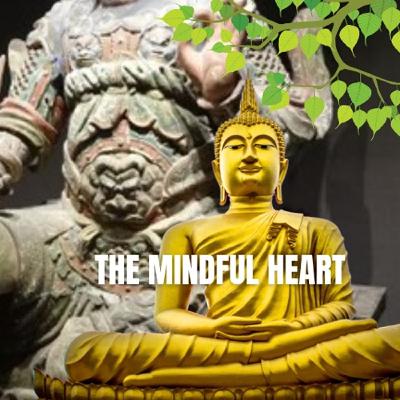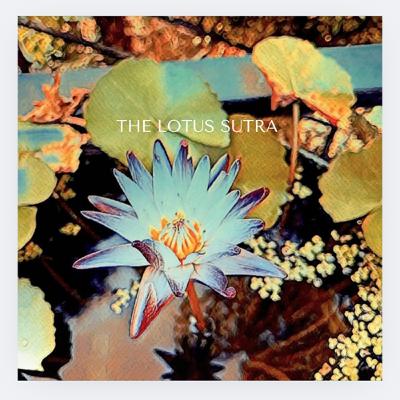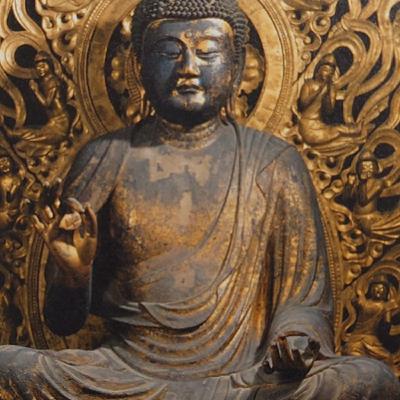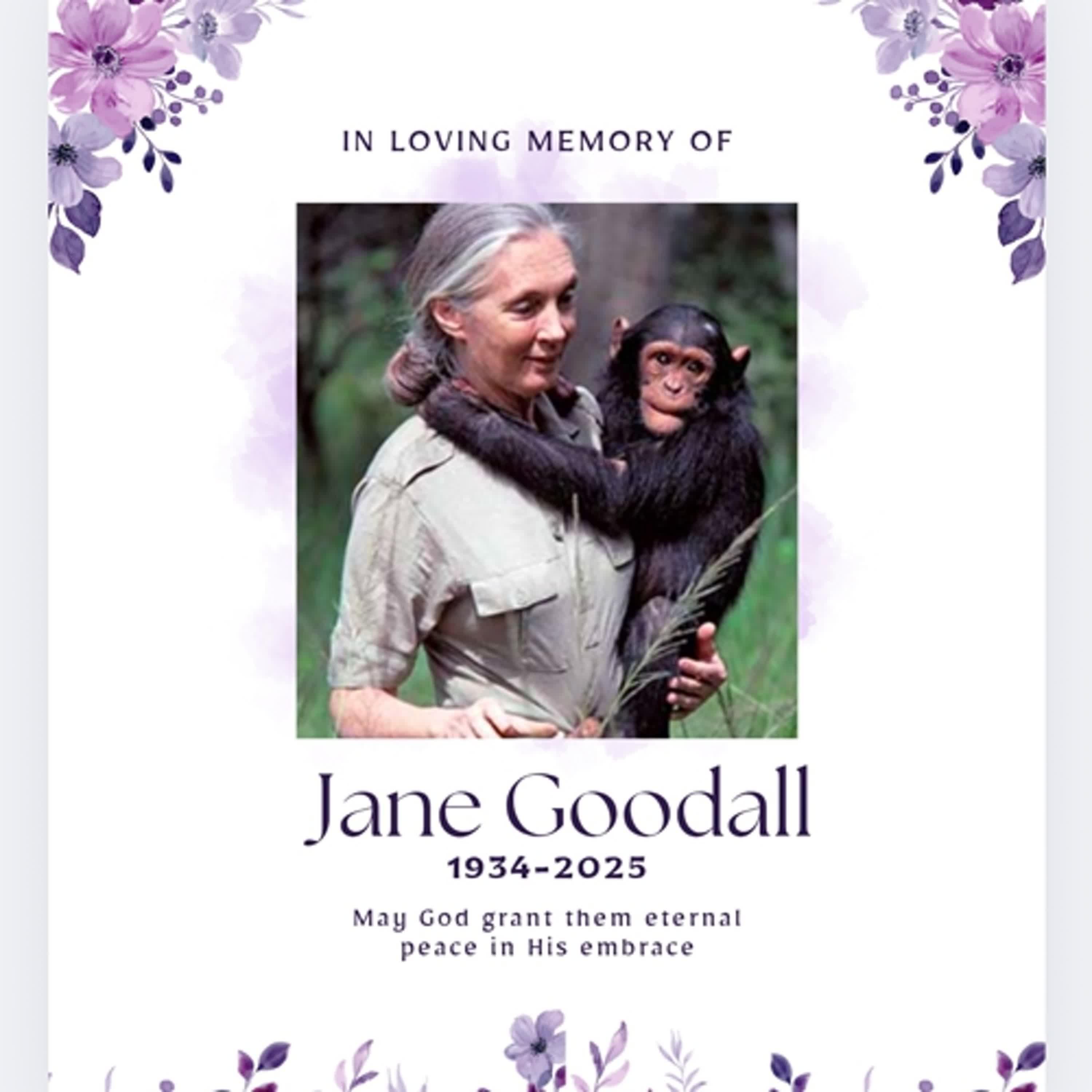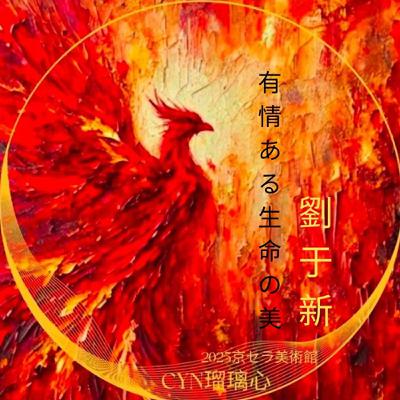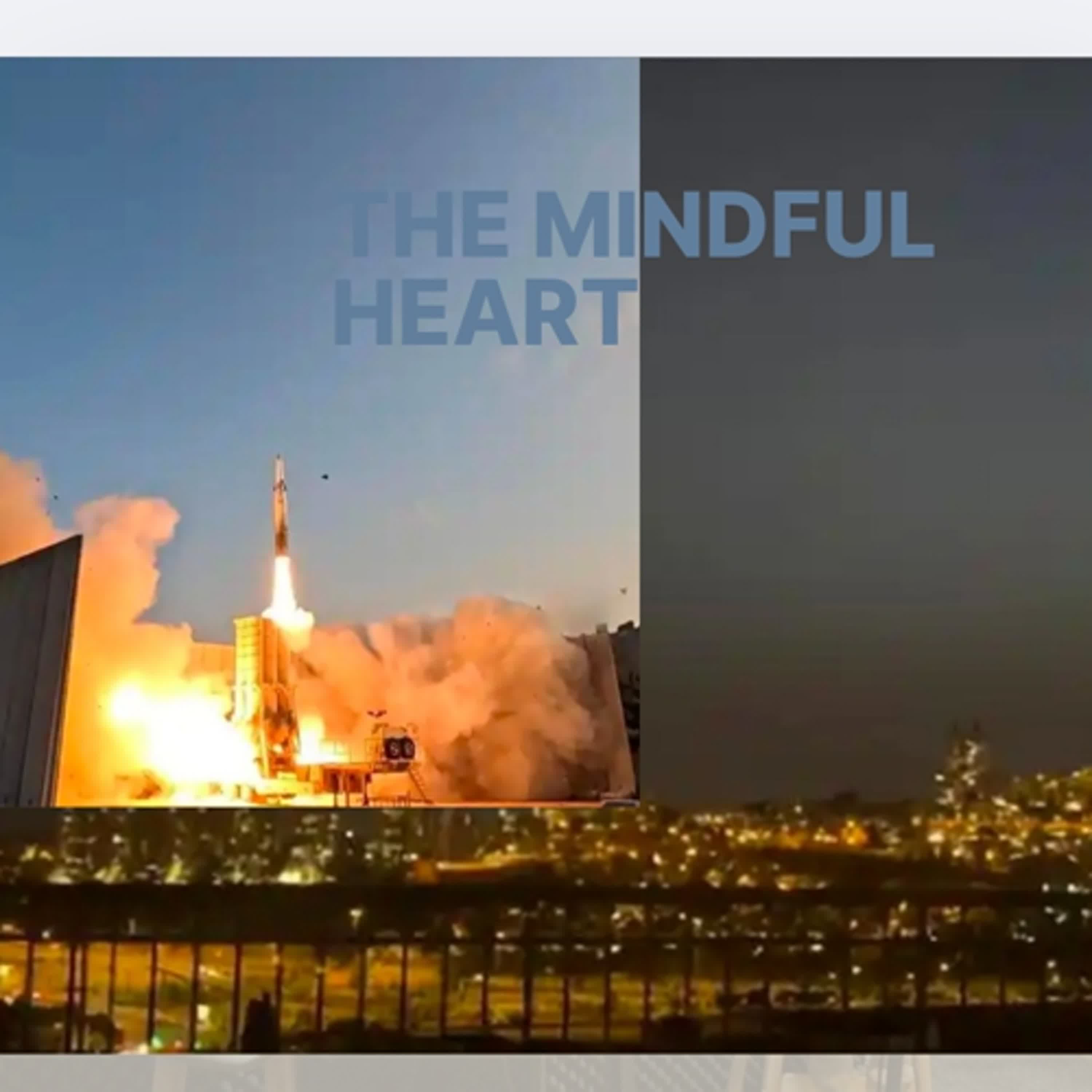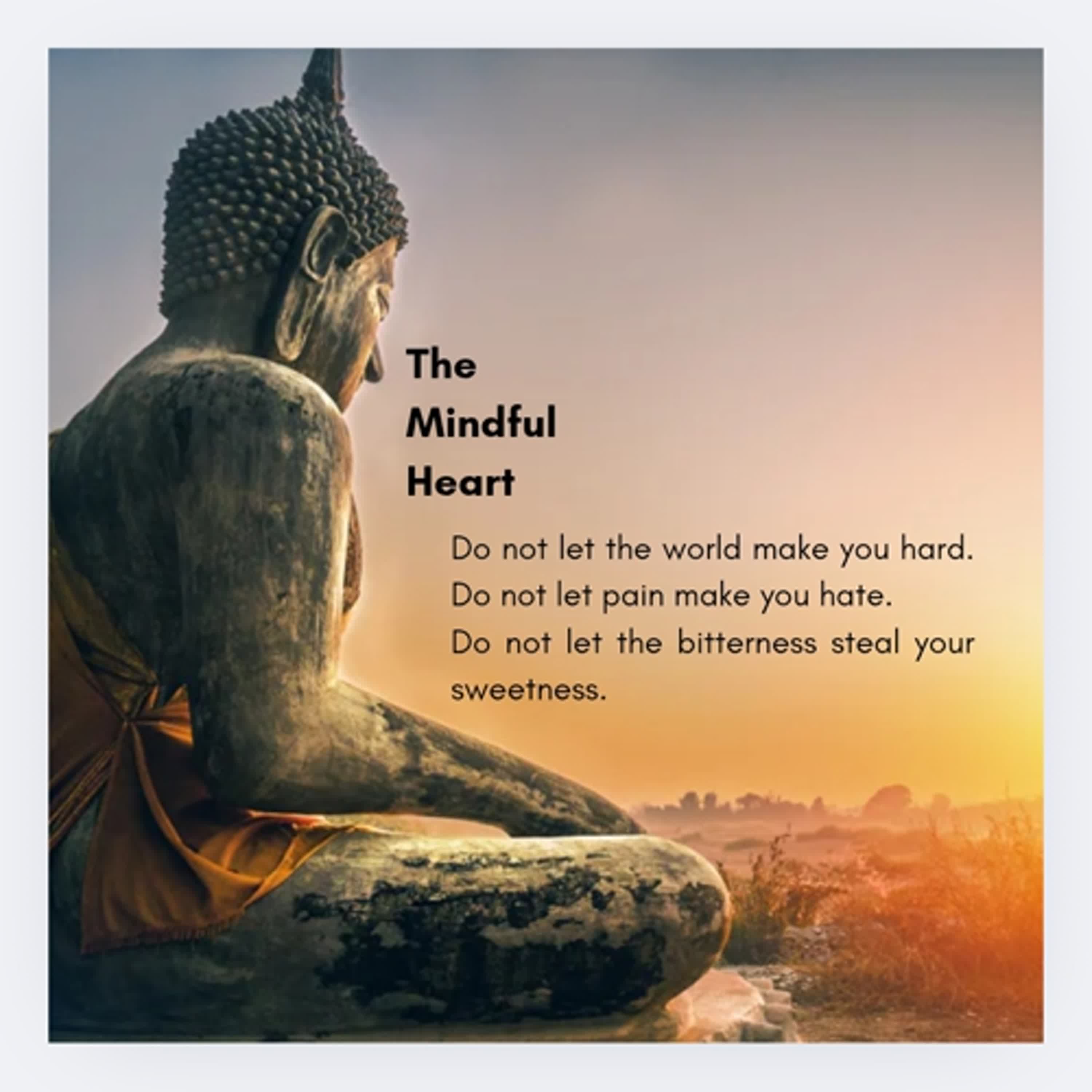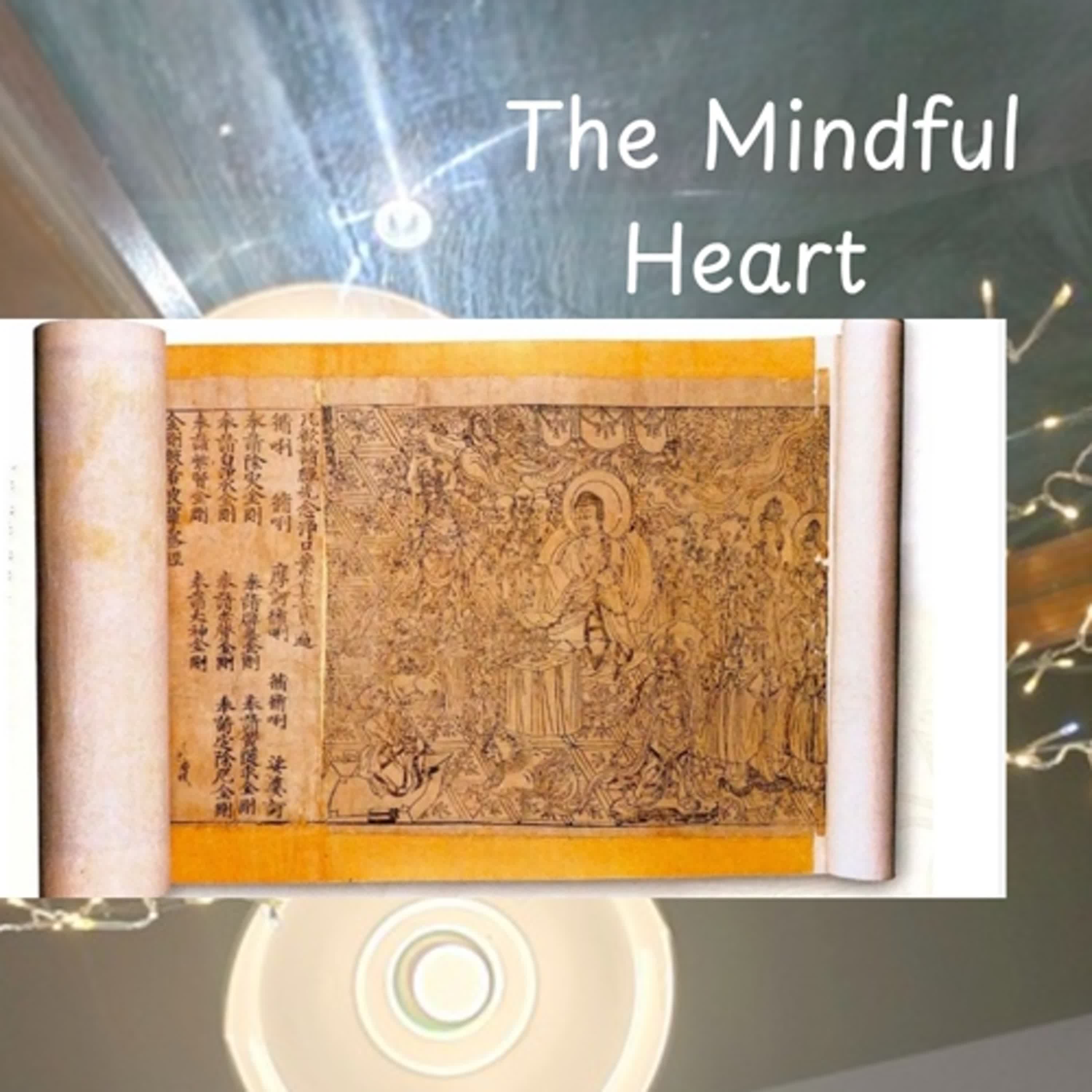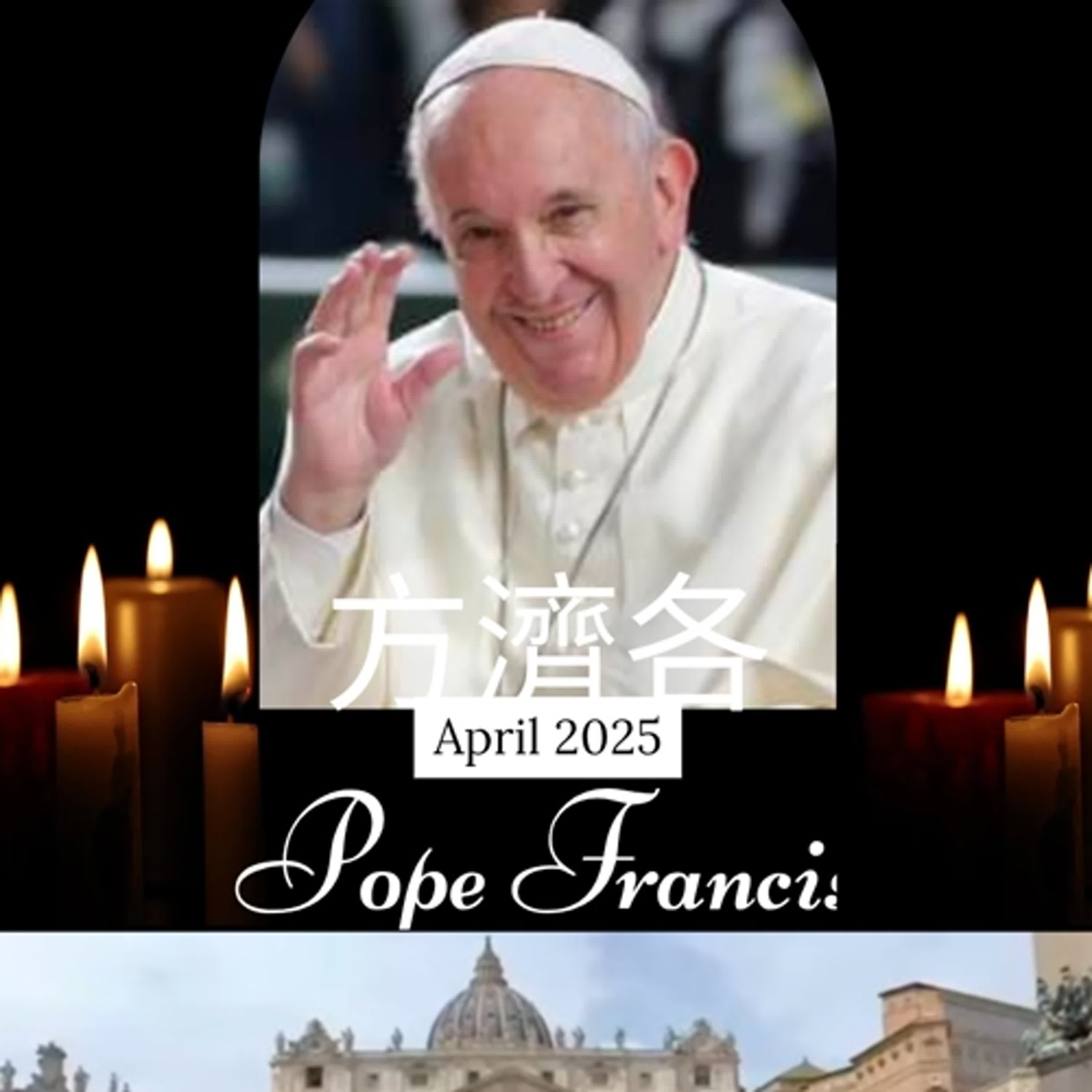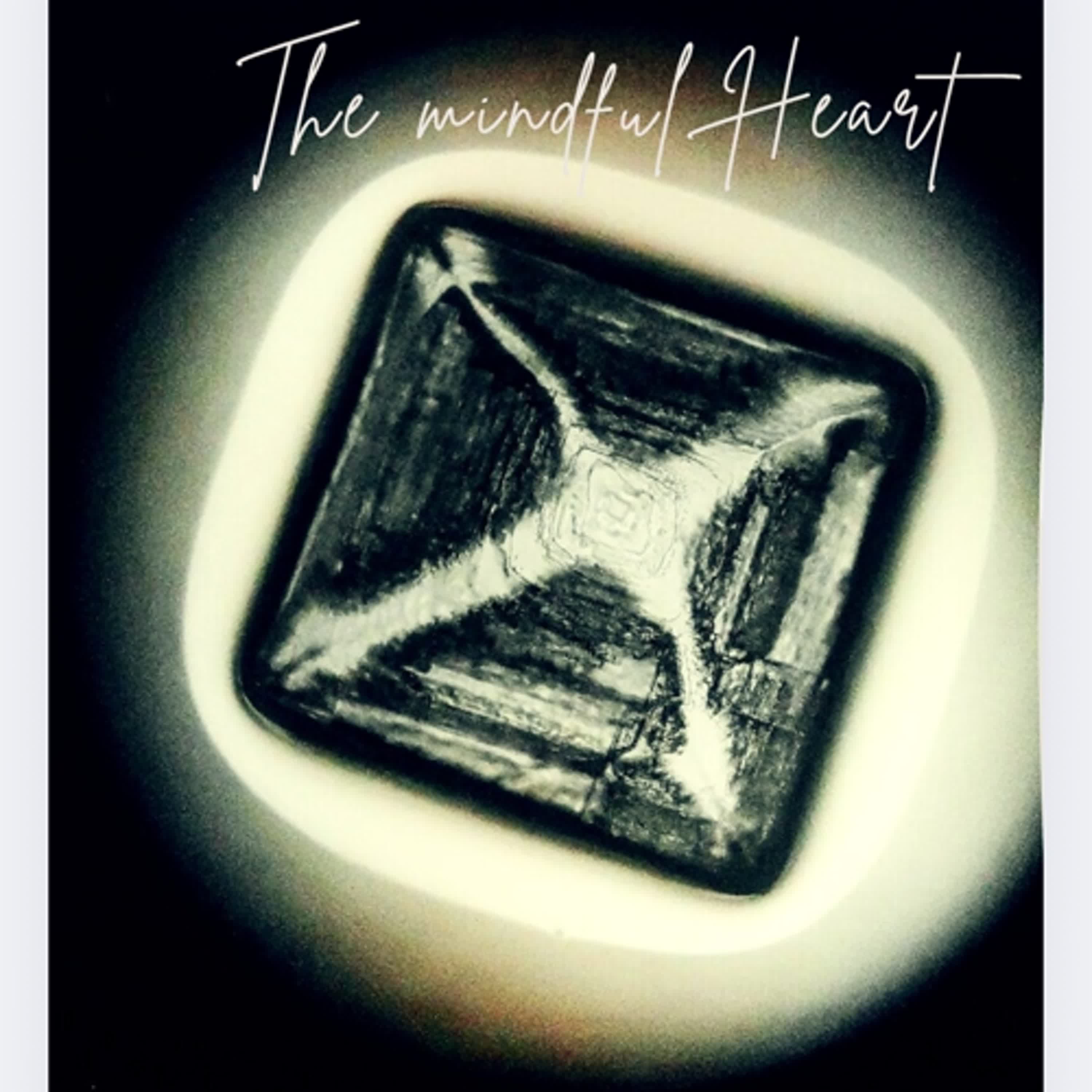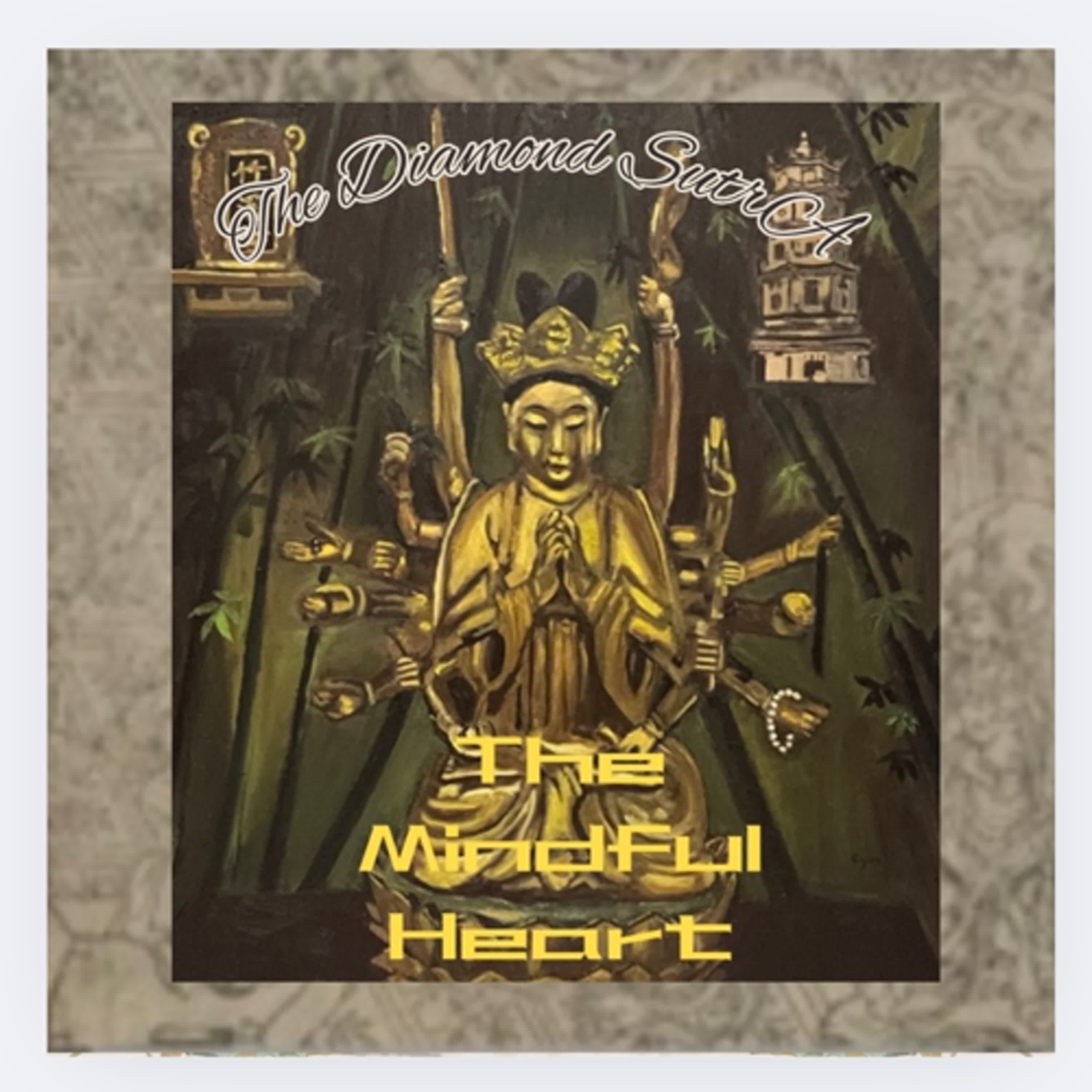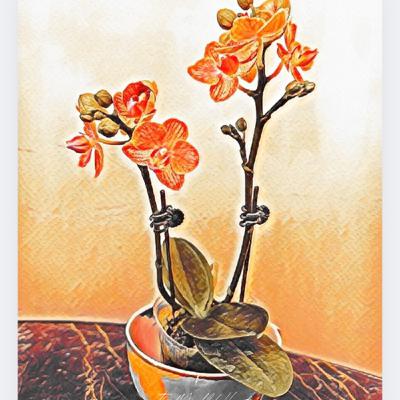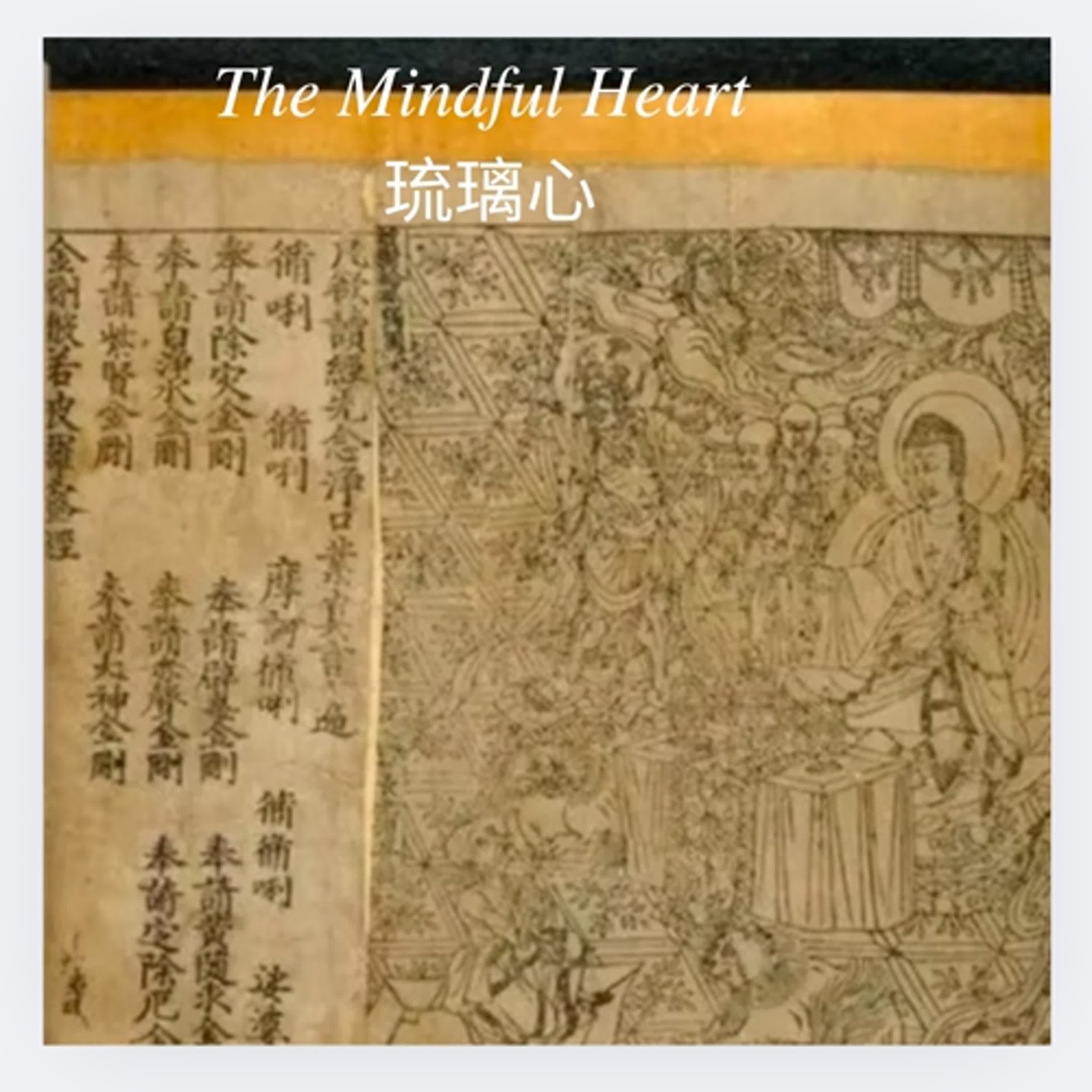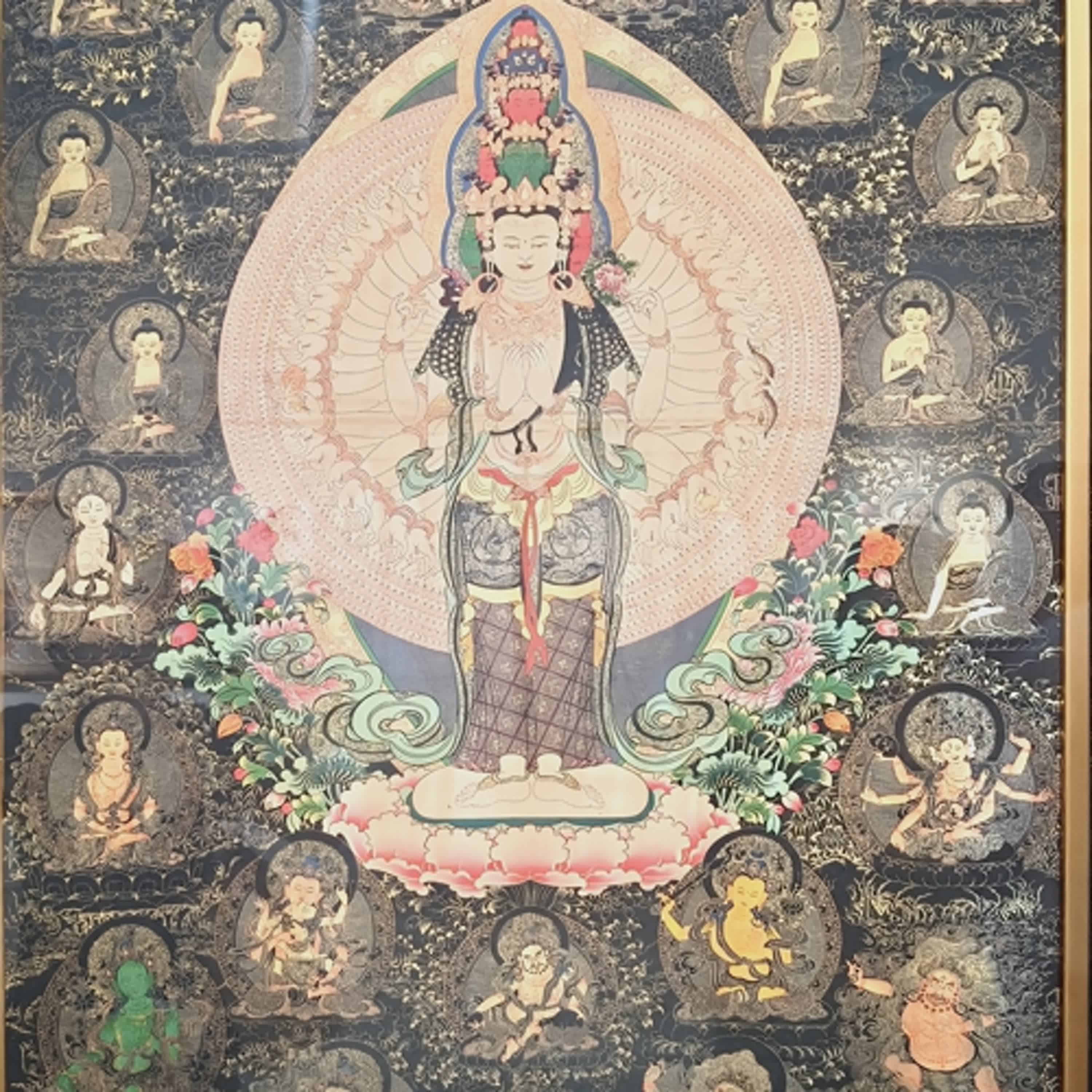Discover 琉璃心The Mindful Heart /Mindfulness Meditation
琉璃心The Mindful Heart /Mindfulness Meditation

琉璃心The Mindful Heart /Mindfulness Meditation
Author: 瑠璃心Xin(Zinn)
Subscribed: 11Played: 93Subscribe
Share
© 瑠璃心Xin(Zinn)
Description
在倫敦政經學院進修mindfulness正念療法,透過正念療法等理論來闡述佛經…..
琉璃無垢、心無雜念、想要有顆琉璃心就要先找到真正的自己。
祈願你我此生得菩提,心似瑠璃;大徹大悟,明心見性,清淨無染。
Hopefully we could gain the bodhi and a glass-like heart.
Powered by Firstory Hosting
267 Episodes
Reverse
Podcast|The Mindful Heart|第六季・第五集 英文版《法華經・正念冥想》 🌿在紛擾的世界裡,練習不是逃離,而是回到呼吸,安住當下。這一集,我們一起緩緩坐下,閉上眼睛,讓身心在呼吸之間鬆動,在《法華經》的智慧裡,學習如何溫柔地與世界同在。感謝大家一路以來的陪伴與支持,《The Mindful Heart》已被 107 個國家的朋友聆聽,訂閱人數突破 40,000。 恭喜我們主持人劉于新的畫作也登上了紐約時代廣場。每一次你選擇按下播放鍵,都是一次回到內心的相遇。願這一段 15 分鐘的正念冥想,成為今日的歇腳處,在忙碌之中,為自己留一口安靜的呼吸。祝福大家馬年順利、平安、幸福 🐎✨Podcast|The Mindful Heart|Season 6, Episode 5Lotus Sutra • Mindfulness MeditationIn the midst of a noisy world,practice is not about escaping—it is about returning to the breathand resting in the present moment.In this episode,we sit gently with our eyes closed,allowing the body and mind to soften with each breath,and learning how to live with clarity and kindnessthrough the wisdom of the Lotus Sutra.Thank you for walking this path with me.The Mindful Heart is now listened to in 107 countries,with over 40,000 subscribers.Congratulations to our host —Liu Yu-Hsin Cyn’s artwork is now featured in Times Square, New York!Thank you for supporting his artistic journeyand for letting art and mindfulness travel together into the world.Each time you press play,it is a quiet meeting with your own heart.May this 15 minute mindfulness practicebe a small resting place in your day—a gentle pause to breathe,and to return to yourself.Wishing you a smooth and joyful Year of the Horse 🤍#TheMindfulHeart #正念冥想 #法華經 #Mindfulness #Podcast #紐約 #時代廣場 #TimeSquare Powered by Firstory Hosting
The Mindful Heart Podcast Season 6 Episode 4 The Lotus Sutra and Mindfulness Practice In this episode, we return to a scene from the Lotus Sutra together. Heavenly beings, dragon kings, artists of sound and beauty, beings of conflict and speed, and a human king with an imperfect past all gather quietly before the Buddha. However this sutra is not listing names. It is showing us something deeper: every state of being has a place in awakening. Those with blessings learn wisdom. Those with power learn compassion. Those who love beauty learn non attachment. Those who struggle learn transformation. Those who move too fast learn how to pause. And ordinary human beings learn that the moment we bow inwardly, the gate to awakening opens. In this episode, we first reflect on the sutra together, then move into a guided mindfulness practice rooted in today’s teaching. We are not practicing to become someone else. We are practicing to gently gather all that we already are around a clear and compassionate center. Listen to The Mindful Heart Podcast Season 6 · Episode 4 and sit in mindfulness with listeners from 107 countries. Because practice does not leave the human world. It lives within it. 🪷Comment and Support https://mindful.firstory.io/join https://open.firstory.me/user/ckqwnj6abmfqu0976slcngntc/comments Powered by Firstory Hosting
The Mindful Heart Season 6 · Episode 3 The Lotus Sutra and Mindfulness Practice Some teachings are not meant to be analyzed,but to be gently rested in. The Lotus Sutra reminds us that every being carries inherent Buddha-nature— light is not somewhere far away; it has always lived within the heart. In Season 6 of The Mindful Heart, we slowly enter the world of the Lotus Sutra, not to chase complex doctrines, but to return— to the breath, to the body, to this present moment. 🎧 In Episode 3, we conclude with a mindfulness practice guided by the spirit of the sutra: like a lotus rooted in the mud yet unstained, like a quiet light steadily glowing within. May this episode offer you a gentle pause in the midst of busyness, and a reminder that you do not need to become someone else— you are already complete. May the light of the Lotus Sutra softly unfold in your everyday life. Comments and Support https://mindful.firstory.io/join 留言告訴我你對這一集的想法: https://open.firstory.me/user/ckqwnj6abmfqu0976slcngntc/comments Powered by Firstory Hosting
The Mindful Heart S6・Ep.2 When the Cloud Falls: The Lotus Sutra & the Still Heart On November 18, the world went silent. The internet collapsed — ChatGPT, X, even government and magazine sites vanished into static. Cloudflare fell, and with it, the illusion of constant connection. In that digital darkness, we remembered something ancient — the quiet network of awareness that never goes offline. “At that time, there were also eighty thousand great Bodhisattvas, all unwavering on their path toward Supreme Perfect Enlightenment.” — The Lotus Sutra When the external cloud breaks, may we find the inner sky — clear, boundless, and awake. Inhale, and feel the courage of the eighty thousand Bodhisattvas within you. Exhale, and let compassion ripple outward, like Dharma light across the infinite web of life. ✨ Even when the cloud collapses, the heart remains online. 🎧 The Mindful Heart Podcast — Season 6, Episode 2 Streaming now across 107 countries. TheMindfulHeartPodcast, Mindfulness, lotusSutra, Meditation, CynLiu, 劉于新, 瑠璃心, 琉璃心, TheMindfulHeart, LotusSutra, Cloudflare, DigitalAwakening, BodhisattvaPath, Dharani, Awareness, 法華經, Comments and Support: https://ckqwnj6abmfqu0976slcngntc.firstory.io/join : https://open.firstory.me/user/ckqwnj6abmfqu0976slcngntc/comments Powered by Firstory Hosting
The Mindful Heart · Season 6 Premiere 🪷 The Lotus Sutra of Wondrous Dharma · Episode 1 “Thus Have I Heard” The new season begins. From the sacred mountain of Grdhrakuta, we listen to the Buddha’s words in English — a journey through the Lotus Sutra of Wondrous Dharma, where ancient wisdom meets mindful presence. May each breath be a verse, each moment a lotus in bloom. After the scripture, we’ll guide a mindfulness practice to ease the mind and return to stillness. ✨ Now streaming in 106 countries. 🎧 Listen on Spotify · Apple Podcasts · Google Podcasts Comments and Support https://mindful.firstory.io/join https://open.firstory.me/user/ckqwnj6abmfqu0976slcngntc/comments Powered by Firstory Hosting
The Mindful Heart Season 5, Episode 83 Shostakovich – Waltz No.2 Mindfulness Practice Music: Performed by Kai-Min Chang, 19th International Chopin Competition A rose blooming amid ruins. A woman maintaining her poise in despair. The melody turns slowly, like dust falling through a smile— luxurious, ironic, yet deeply elegant. This waltz is not for joy, but to prove one thing: even when the world collapses, someone still remembers how to turn. The strings sigh like resignation; the brass glimmers like tears. It is the courage to hide pain beneath the perfection of grace. In the final light of the world, she still puts on her makeup. No one sees her, yet she paints her lips, lifts her chin, and smiles softly. Because elegance is her last defense. Those who dance upon ruins are the ones who truly understand dignity. Mindful Note Let music become breath. Let sorrow soften into tenderness. When we listen deeply, every note becomes an echo of compassion. Thank you to our listeners in over one hundred countries. May this moment of melody, guided by Kai-Min Chang’s performance at the 19th Chopin Competition, remind us— even in despair, we can turn again, with mindfulness and grace. Support and comments: https://open.firstory.me/user/ckqwnj6abmfqu0976slcngntc https://open.firstory.me/user/ckqwnj6abmfqu0976slcngntc/comments Powered by Firstory Hosting
The Mindful Heart S5 EP82 Within every breath, we can find the power to be at ease. In Season 5, Episode 82, we invite you to join us on a mindful journey— from timeless wisdom to contemporary life stories, from tears of loss to the continuation of love. In this episode, we reflect on: Contemplating impermanence — how “All conditioned phenomena are like a dream, an illusion, a bubble, a shadow” can be lived in daily life. Nature’s inspiration — honoring Dr. Jane Goodall, learning from her compassionate gaze that protected all living beings. Practicing presence — using simple breath and awareness to return the heart to its most tender place. Mindfulness Reminder: Life is impermanent, but compassion can endure. Love may fade with the body, yet in each moment of awareness, it shines again. May this episode be a light in your heart—guiding you through impermanence, illuminating hope. Support and Comments: https://open.firstory.me/user/ckqwnj6abmfqu0976slcngntc : https://open.firstory.me/user/ckqwnj6abmfqu0976slcngntc/comments Powered by Firstory Hosting
The Mindful Heart – Diamond Sutra and Mindfulness Meditation Season 5 · Episode 81- “O Subhūti, if one were to fill immeasurable worlds with seven treasures and offer them in giving, yet another who holds even four lines of this Sutra, recites, teaches, and shares it with others—the merit of the latter surpasses the former. To teach is to rest unmoved, without clinging to appearances.” All things arise through conditions. Life is like morning dew—meeting is Karmic connection, parting is Karmic connection. Today we practice mindfulness with gratitude, remembering Charlie Kirk. His life, whatever words or positions, was also the unfolding of conditions. Let us not cling to judgment, but meet his story with an equal heart. The Dharma reminds us: all is impermanent, all is interdependent. What appears must dissolve, but compassion and wisdom endure. May Charlie Kirk rest in the Buddha’s light. May his family and friends find peace.And may we, in remembrance, let go of grasping, return to the present, and transform this moment of life into the path of practice. 加入會員,支持節目: https://open.firstory.me/user/ckqwnj6abmfqu0976slcngntc 留言告訴我你對這一集的想法: https://open.firstory.me/user/ckqwnj6abmfqu0976slcngntc/comments Powered by Firstory Hosting
The Mindful Heart Podcast the English version Season 5, Episode 80 “When countless beings pass by, new sprouts quietly unfold.” In this special 80th episode, we begin with a verse from the Diamond Sutra: “Subhuti, one who has set their mind on attaining Anuttara-samyak-sambodhi should thus know, thus see, thus believe, and thus understand all dharmas, without giving rise to the appearance of phenomena.” Let these words lead you into a mindful stress-relief meditation— a space to gently rest, breathe, and release form, judgment, and clinging. This episode is a quiet offering of compassion, a love letter to presence itself. And a special invitation: From August 26th to 29th, I’ll be holding my largest solo exhibition at the Kyoto City KYOCERA Museum of Art. The opening performance of "Mindful Ballet" will begin at 10:00 a.m. on August 26th. May the paintings and dance become prayers—soft bridges between past and future, between ancestors and those of us still walking the path. Comment and support https://open.firstory.me/user/ckqwnj6abmfqu0976slcngntc https://open.firstory.me/user/ckqwnj6abmfqu0976slcngntc/comments Powered by Firstory Hosting
Season 5, Episode 79 Unraveling the Self: Mindfulness & Wisdom from the Diamond Sutra “If someone says the Buddha speaks of self, person, being, or lifespan—do they truly understand his teaching?” When stress rises, the voice of “I” often grows louder. In this episode, we turn to the Diamond Sutra to explore how releasing the grip on identity can bring us peace. Let your heart become like crystal—clear, open, and unshattered. 📿 What we reflect on: – How “self-view” fuels anxiety – How mindfulness softens our clinging – How to transform ancient teachings into daily relief 🧘♀️ Listen via link in bio 🎧 Available on Spotify / Apple / Google Podcasts https://open.firstory.me/user/ckqwnj6abmfqu0976slcngntc https://open.firstory.me/user/ckqwnj6abmfqu0976slcngntc/comments Powered by Firstory Hosting
The Mindful Heart Season 5, Episode 78 Let Go of the Composite Form Under the quiet glow of the Strawberry Moon, we arrive at Episode 78. This week’s episode is about letting go-not running away, but gently seeing things for what they are, and loosening the grip we didn’t realize we were holding. Last Friday, I attended the premiere of The World Between Us 2, a deeply moving Taiwanese drama now streaming across 240 countries via Amazon Prime Video. In the show, there’s a mental health facility called Chingyun mental health hospital-a space for reflection, for breakdown, for healing. That fictional place is based on a real one: an oil painting I created last year, late at night, in solitude. I painted it because I, too, needed a place to rest my mind. Somehow, that image made its way into the show’s visual language-just as our quiet intentions often ripple further than we expect. This episode centers on a line from the Diamond Sutra: “A composite form cannot truly be spoken of. But ordinary people become attached to it.” When we say: “I failed.” “They hurt me.” “This is who I am.” -we’re clinging to a composite form: a temporary bundle of feelings, memories, stories, and physical reactions. We treat that moment as the whole truth. But mindfulness gently reminds us: These identities are assembled, moment by moment. They are not fixed. And they are not who we truly are. In this episode, I’ll guide you through a simple mindfulness practice to help you see these “composite forms” clearly-then let them go, breath by breath. Just like the Strawberry Moon: It is full-not for anyone. It shines-not to prove anything. It simply is. What would it feel like if we could live like that, too? Thank you, as always, for listening with your mindful heart. May this episode bring you closer to the ground of peace that’s always been there. Comment and support -https://open.firstory.me/user/ckqwnj6abmfqu0976slcngntc : https://open.firstory.me/user/ckqwnj6abmfqu0976slcngntc/comments Powered by Firstory Hosting
Podcast S5 EP77 The Mindful Heart: "The World Is Not the World" Diamond Sutra Section 96 × Mindfulness Meditation × The Life of 張忠義 He is one of a pair of conjoined twins but also a complete and singular soul, walking a path no one else could walk. He didn’t choose this life, yet he responded to it with stillness, compassion, and quiet strength. In this episode, we turn to a timeless line from the Diamond Sutra: "The world is not the world; it is merely called the world." A phrase that invites us back to the present moment to loosen our grip on identity, form, and expectation. Through mindfulness, and through the story of Zhongyi, we ask not just how he lived… but how we might live more awake. Highlights: A guided meditation on letting go and coming home The early life of Chang Zhongyi: from being defined to becoming whole “Sometimes, it’s not he who needs help it’s us who need to awaken.” May this episode help you see more clearly: The world is not what it seems and life, even in pain, is always deeper and more spacious than we think. Comments and Support: https://open.firstory.me/user/ckqwnj6abmfqu0976slcngntc : https://open.firstory.me/user/ckqwnj6abmfqu0976slcngntc/comments Powered by Firstory Hosting
The Mindful Heart Podcast Season 5, Episode 76 Now listened to in 85 countries. In today’s episode, we begin with a reflective reading from the Diamond Sutra: "Subhuti said: 'World-Honored One, how great this teaching is! Why? If the multitude of atoms were real entities, the Buddha would not have called them atoms. Why? The Buddha says atoms are not truly atoms; they are merely called atoms.' This profound wisdom reminds us of the emptiness of all forms - a teaching to help us release attachment and cultivate clarity. In the second part of the episode, we guide the blossoming mindfulness meditation - letting go of concepts, returning to presence. This practice to ease tension and return to the present moment with compassion and awareness. May this session bring insight and peace to your journey. Comment and Support: https://open.firstory.me/user/ckqwnj6abmfqu0976slcngntc : https://open.firstory.me/user/ckqwnj6abmfqu0976slcngntc/comments Powered by Firstory Hosting
The Mindful Heart · Season 5 · Episode 75 “May your light still gently find us” Some people leave, and in their absence, we find more reason to become gentle. In this episode, we offer a quiet tribute to a spiritual pilgrim- Pope Francis. A shepherd who walked among the people, who embraced a broken world with open hands and deep listening. He once said: “Hope is the virtue of a heart that doesn’t lock itself in darkness.” Even in times of great unrest, he chose to believe- and invited us to believe too: that faith is not a banner to be raised, but a posture of humility. Through words and silence, we remember the light he offered, and we ask ourselves: Can we become a little more like that light? Support and Comment: https://open.firstory.me/user/ckqwnj6abmfqu0976slcngntc : https://open.firstory.me/user/ckqwnj6abmfqu0976slcngntc/comments Powered by Firstory Hosting
The Mindful Heart – Season 5, Episode 74 “Dust into Light: Mindful Meditation of the Diamond Sutra” Welcome to Episode 74 of The Mindful Heart, now listened to in 85 countries across the world. In this episode, we return to a moment where breath, movement, and emptiness met in perfect stillness. On April 12th, I performed a mindful ballet at the opening of the Art Exhibition at Taichung Girls’ Senior High School. This performance was not just an offering of movement, but a living reflection of the Diamond Sutra’s teaching: that even infinite worlds can be reduced to dust, and from that dust, clarity and compassion may arise. Inspired by this, we will also guide a short Dust Meditation, rooted in the Diamond Sutra’s famous metaphor "If all worlds were ground into fine particles, would there be many atoms?" Through this visualization, we reflect on the impermanence of all forms, and the vast, quiet awareness that remains when we let go of clinging. The exhibition, open by appointment until May 11th, invites visitors to enter a space of softness, depth, and inner presence through art. Join me in this gentle journey: from dust into light. Support and Comment https://open.firstory.me/user/ckqwnj6abmfqu0976slcngntc : https://open.firstory.me/user/ckqwnj6abmfqu0976slcngntc/comments Powered by Firstory Hosting
Podcast Title: The Mindful Heart: Season: 5 Episode: 73 Stillness in Motion: The Dignity of Presence – Exploring the Diamond Sutra, Chapter 29 Episode Description: In this 73rd episode of The Mindful Heart: we delve into the 29th chapter of the Diamond Sutra – The Dignified Stillness of Conduct. Through a reflective reading and discussion, we explore how the Bodhisattva embodies silence, serenity, and mindful presence even while moving through the world. What does it mean to act without attachment, and to walk without truly arriving or departing? We’ll also be guiding a short mindfulness meditation, inspired by the phrase "nowhere coming, nowhere going", helping us return to the center of awareness – where past and future dissolve, and only presence remains. Tune in for a gentle yet powerful reminder: true dignity is not found in outer form, but in the stillness of a compassionate heart. Segments: Opening reflection: the paradox of movement and stillness Sutra reading: Chapter 29 of the Vajra Sutra Guided mindfulness: Arriving in every step, departing from nothing Closing thoughts: living the Bodhisattva path in daily life Comments and Support https://open.firstory.me/user/ckqwnj6abmfqu0976slcngntc : https://open.firstory.me/user/ckqwnj6abmfqu0976slcngntc/comments Powered by Firstory Hosting
Observing Life with Clarity, Blooming with Wisdom In the midst of our busy lives, have we ever paused to reflect on what true happiness and fulfillment really mean? The Mindful Heart Podcast explores mindfulness, Buddhist wisdom, and everyday reflections to guide you back to the present moment-helping you find inner peace and clarity. This Episode: The Wisdom of Selfless Giving in the Diamond Sutra This episode delves into the profound teaching of “Non-Attachment in Giving” from the Diamond Sutra. We explore why the Buddha taught that bodhisattvas do not cling to merit, and how we can apply this wisdom in modern life and work—allowing acts of kindness to remain pure, unburdened by the desire for recognition or reward. Key Takeaways: What is Non-Attachment in Giving? Why is true generosity free from expectation? Letting go of the need for validation—finding joy in giving without seeking praise. Mindfulness and the lesson of orchids: They bloom without seeking attention, and they fade without regret. Practical steps to cultivate non-attachment—how we can integrate this wisdom into daily life for greater freedom and peace. Through this mindful discussion, we learn how to practice Buddhist wisdom in today’s world, ensuring that acts of kindness are not a burden but a natural expression of inner harmony and completeness. Let’s find stillness and clarity within, even amidst the noise of the world. Comments and Support: https://open.firstory.me/user/ckqwnj6abmfqu0976slcngntc https://open.firstory.me/user/ckqwnj6abmfqu0976slcngntc/comments Powered by Firstory Hosting
The Mindful Heart Podcast Episode 71: Embracing Life with Compassion and Wisdom We sincerely appreciate your continuous support for the Mindful Heart podcast. We are honored to be among the top-ranked podcasts, with listeners from 82 countries worldwide. This journey has been filled with joy and inspiration as we explore mindfulness together, nurturing compassion and wisdom in our lives. We are also delighted to share that the "Sentient Beings" Art Exhibition has successfully concluded. This exhibition was not only a celebration of artistic beauty but also a profound reminder of the value and dignity of every living being. During the exhibition, the Tainan First Senior High School Choir delivered a heartfelt performance of the song “The Rainbow Outside the Wall.” This moving song, told from the perspective of marine life, expresses their longing for freedom and highlights the importance of respecting and protecting all creatures of the ocean. Mindfulness Insights from "The Rainbow Outside the Wall" As Master Cheng Yen once said, "To respect nature is to respect life; to embrace all beings is to embrace our hearts." Listening to this song with mindfulness allows us to reflect on the following three key insights: 1. Respecting Life and Protecting All Beings Every being, regardless of its size or form, coexists in the web of interdependence. As we listen to this song, we can observe our emotions and cultivate a sense of compassion for all living creatures. Mindfulness encourages us to practice kindness toward all forms of life—whether marine animals, humanity, or the environment. 2. Letting Go of Attachments and Embracing the Present Moment “The Rainbow Outside the Wall” reminds us that just as marine creatures are confined in captivity, our minds can also be trapped by attachments and desires. Through mindfulness, we can learn to let go of these attachments, observe our thoughts without judgment, and embrace the present moment with a sense of peace and clarity. 3. The Power of Compassion and Hope Life, like the ocean, is ever-changing. Through mindfulness practice, we can develop the patience to face challenges and the compassion to support ourselves and others. Just as the rainbow eventually appears after the storm, hope and resilience will shine through when we cultivate an open heart. Let us carry the spirit of this song beyond the exhibition and into our daily lives. Small actions—such as reducing plastic waste and supporting sustainable initiatives—can make a meaningful difference in protecting marine life and our planet. Mindfulness Interpretation of the Diamond Sutra: Generosity and the Wisdom of Non-Self In this episode, we will explore the Buddha’s teaching to Venerable Subhūti in the Diamond Sutra, which highlights the relationship between generosity and wisdom. The ultimate practice of a bodhisattva is rooted in the realization of non-self, rather than attachment to the merit gained from acts of giving. Through mindfulness, we can apply the following insights from the sutra in our daily lives: 1. Giving Without Attachment – True generosity comes from an open heart, without expecting recognition or rewards. Mindfulness helps us observe our motivations and let go of the need for validation. 2. Observing Non-Self – Everything arises from conditions and is impermanent. Practicing mindful awareness allows us to release attachment to the sense of "I" and "mine," fostering deeper compassion and connection with others. 3. Being Present in Acts of Kindness – Whether offering a helping hand, a smile, or our time, mindfulness encourages us to engage with full presence and appreciation, without seeking specific outcomes. By embracing these teachings, we can cultivate genuine compassion and find liberation from attachment. Mindfulness Body Scan for Stress Relief To help you integrate mindfulness into your daily life, this episode will guide you through a body scan practice to release stress and restore balance. Steps: 1. Bringing Awareness to the Present Moment – Focus on your breath, allowing yourself to settle into the present moment with a sense of calm. 2. Scanning from Head to Toe – Gently bring your attention to different parts of your body, observing sensations without judgment and releasing any tension with each breath. 3. Letting Go and Resting in Awareness – With each exhalation, imagine tension melting away, leaving your body relaxed and your mind at ease. Let this practice become a part of your daily routine, helping you return to a state of inner balance and tranquility whenever life feels overwhelming. Once again, we deeply appreciate your support! Let us continue our journey with the Mindful Heart, learning and growing together. Through mindfulness, we can bring fulfillment to our lives and harmony to the world. Support our program with a small donation to help us spread mindfulness https://open.firstory.me/user/ckqwnj6abmfqu0976slcngntc We invite you to share your thoughts and reflections with us: : https://open.firstory.me/user/ckqwnj6abmfqu0976slcngntc/comments Powered by Firstory Hosting
In this episode of "The Mindful Heart", we delve into the profound wisdom of the Diamond Sutra, exploring its teaching on “non-annihilation in the Dharma” (於法不說斷滅相). The sutra guides us to approach the impermanence of life with an ungrasping mind, recognizing the truth of dependent arising without attachment or aversion. This teaching reminds us that endings are not final—they are the seeds of new beginnings. By not clinging to forms, we can embrace the freedom and liberation that lies beyond them. In the latter part of the episode, I will guide you through a Body Scan mindfulness practice as part of stress reduction. This gentle exercise invites you to reconnect with the present moment by bringing awareness to each part of your body, from the top of your head to the tips of your toes. Through this practice, we aim to cultivate a sense of groundedness, release tension, and rediscover the harmony within ourselves. May this episode bring you a moment of peace and clarity amidst life’s busyness, inspiring a deeper connection to your inner wisdom. I look forward to journeying with you on this path of mindfulness and awakening. comment and support: https://open.firstory.me/user/ckqwnj6abmfqu0976slcngntc : https://open.firstory.me/user/ckqwnj6abmfqu0976slcngntc/comments Powered by Firstory Hosting
Welcome to podcast-The mindful Heart. This is Xin (Zinn). Thank you for your support ! Remember, no matter what the year brings, you are loved and you are strong. Wishing you peace and happiness. Now The Mindful Heart is listened to in a total of 81 countries, where we read the Diamond Sutra together and take all of you to practice mindful yoga. Starting in November, the host of the mindful Heart will hold an art exhibition at the centennial campus of Tainan Girls’ Senior High School, inspired by the works of Dutch artist Jan Derk Diekema from Groningen. The opening event will feature a mindful ballet performance, and everyone is warmly invited to attend and show their support. One of the paintings in this exhibition depicts the Cundi Bodhisattva statue at Zhu Xi Temple, the oldest Buddhist temple in Taiwan, built during the Ming Dynasty. We look forward to everyone appreciating it. This painting was exhibited in old palaces in Spain and Italy. We welcome friends who support podcast the mindful heart to come and admire the artwork. This Passage of the Diamond Sutra Emphasizes “Formlessness” and “Non-Attachment to Thoughts” in Practice: 1.Formlessness (Beyond Forms):The essence of enlightenment lies in transcending all forms and not relying on external appearances. Even the Buddha’s form, such as the Thirty-two Marks, is merely a worldly appearance and not the true foundation of enlightenment. 2.Non-Attachment to Thoughts (No Attachment to Thoughts):One must not only let go of attachment to forms but also release the notion of “non-attachment to forms.” Otherwise, becoming attached to the concept of formlessness is still a form of attachment.Practical Insights for Spiritual Practice:Transcending Forms and Concepts:In practice, we should avoid clinging to any form or concept. Whether it is meditation, chanting, or other practices, they should not become mental constraints. Letting Go of “Non-Attachment”:The wisdom of the Buddha lies in not even being attached to the ideas of formlessness and non-attachment. This leads to complete inner liberation. Conclusion: This episode reminds practitioners that the Buddha’s enlightenment does not arise from external forms, nor should we cling to the ideas of formlessness or non-attachment. True enlightenment is found in total inner freedom—freedom from forms, concepts, and even the notion of non-attachment itself. This is the path to achieving supreme enlightenment. Let’s conclude with a guided mindfulness meditation-Learning about your feelings May it bring peace and blessings to everyone. Support and Comments https://open.firstory.me/user/ckqwnj6abmfqu0976slcngntc : https://open.firstory.me/user/ckqwnj6abmfqu0976slcngntc/comments Powered by Firstory Hosting


